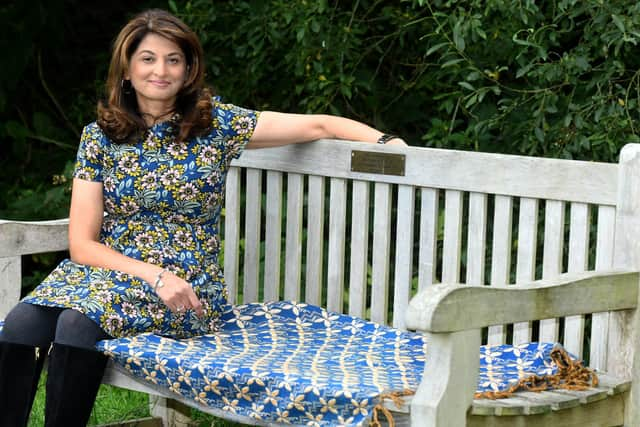Why do we still deprive people of the choice of a dignified death? - Daxa Patel
It is said in life two things are certain, taxes and death. Death and dying is such a big part of human existence that we ought to celebrate it, but we don’t like to talk about it unless we must.
I want to nudge us to have a conversation about whether in this modern age we should all have a say in our own death.
Advertisement
Hide AdAdvertisement
Hide AdFor older people there is the fear of what will happen to them when they become frail and lose control of their life. I know this because my father and I talked about this.


Even at the 95 he had all his mental faculties, and he would talk about euthanasia. He was aware of Dignitas in Switzerland.
As his body became a burden he lost the joy of living, I would feel the same if I were in his shoes. I could do nothing for him other than to listen and reassure him.
If I have only months to live then I would want to be able to choose when I die, and how I die, right now I am not allowed to. Now those of us with pets can facilitate and end their suffering, yet we do not have the same option.
Advertisement
Hide AdAdvertisement
Hide AdI should at this stage make it clear that I am expressing my personal views here.
As I am next in the queue after my dad’s death, I find myself drawn to death. It is a practical consideration when I am ready, I want a choice as to how, and when.
A good death is no different to a good life. Most people I imagine would want to die at home surrounded by their loved ones, and in their own surroundings while some may not. How do we get to a point whereby people who want a choice do indeed have a choice?
Advertisement
Hide AdAdvertisement
Hide AdIf a person wants to, they must travel abroad like Switzerland for example.
There are ethical considerations of course, and it's a matter of personal faith. It is also important that we safeguard and protect the vulnerable.
The very least we need is to debate this and consider how we can alter the law to ensure there is no misuse of euthanasia.
The relationship between a doctor and a patient is built on trust, and there is also the fiduciary duty to do no harm.
Advertisement
Hide AdAdvertisement
Hide AdThere is also a duty to ensure the doctor acts in the best interest of the patient.
I am not saying what I want should apply to others, but with strong arguments for and against both sides of the fence, and different, and often strong opinions, we can no longer bury our heads in the sand, and pretend this issue will simply go away.
To respect everyone's opinion, I would advocate a referendum, so everyone gets to have a say, and then we either keep the law as it is, or we amend it to make it more humane, and compassionate.
In fact, even in Switzerland where Dignitas is based, there were two referendums in 2011. Voters in Zürich overwhelmingly rejected calls to ban assisted suicide or to outlaw the practice for non-residents.
Advertisement
Hide AdAdvertisement
Hide AdA well-known person recently lost his father to suicide. Their father had a terminal disease.
Taking one’s life without support or help must be incredibly hard and one cannot imagine the anguish this father must have felt doing this all by himself.
If this father had had the chance to end his life with his family around him and with the support of his doctor could this have been a good death?
It is possible to get the balance right if we really want to but there needs to be first an acknowledgement that the law as it stands warrants a review to take into consideration the wishes of those who would like a choice of how, and when they die especially, when their continuing life is hard to bear.
Advertisement
Hide AdAdvertisement
Hide AdIn a society where all citizens are supposed to be valued and respected, this issue is also about whether we value and respect people enough to give them a choice as to the manner of their death.
I would like to think that if the day came and I had to decide about my dog’s welfare, my dog would trust me to act in his best interest.
It is hard to go much deeper here on what is a very difficult subject and I respect those who may disagree.
But I would go one step further and say, isn’t assisted dying already happening albeit in subtle ways, like the very overuse of DNR (do not resuscitate) orders for the elderly, or indeed during the pandemic when our hospitals were stretched to the limits?
Or when the government allowed our seniors to go back into care homes from hospitals when there was a shortage of covid tests, and PPE?
Daxa Patel is a solicitor, author and executive coach.